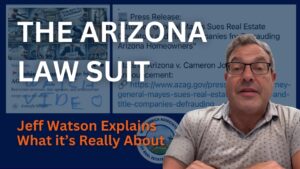
Subject To Real Estate: What It Is, Why It’s Hot, and What You Really Need to Know
Before You Create a Legal Mess You Can’t Unwind
You’ve probably heard it already:
“Buy a house without a loan!”
“Take over payments on a 2% mortgage!”
“No banks, no credit checks—just profits!”
That’s the pitch for Subject To real estate investing, and right now, it’s everywhere.
But behind all the hype, there’s a real strategy that can solve real problems—for sellers and investors alike—if it’s done the right way.
And, as we learned from Kathie Russell, retired attorney, long-time investor, and board member of NCREIA, it can go very wrong if you don’t know what you’re doing.
We recently tuned in to her conversation with Vena Jones-Cox on the Real Life Real Estate Investing Podcast, and let me tell you: this is the real stuff, not guru fluff.
🎧 You can listen to the full episode here:
👉 Buying Subject To with Kathie Russell
Now let’s break down what Subject To actually is, why it’s booming, and what you really need to know before you try your first deal.
🧾 What Is a Subject To Deal?
Buying “Subject To” means you’re buying a property subject to the existing mortgage staying in place.
Here’s how it works:
The seller deeds the property to you
The existing mortgage does not get paid off at closing
You agree to make the mortgage payments moving forward
The mortgage stays in the seller’s name, but you now own the house.
It’s legal. It’s done all the time. But it must be done with full disclosure and documentation, or it can blow up later.
📈 Why It’s Booming Right Now
This strategy isn’t new—but market conditions have made it more popular than ever.
Why? Because we’re in a weird moment:
Sellers are struggling financially, especially those with job losses, divorces, or inherited properties.
At the same time, they have incredibly attractive financing—mortgages with 2%–3% interest rates.
Investors, on the other hand, are being offered 7%+ bank loans—if they can qualify at all.
So instead of going to the bank, savvy investors are using Subject To to pick up properties with built-in financing, often with little money out of pocket.
“You’re solving a problem for the seller and avoiding the high-interest environment yourself,” Kathie explained. “But that doesn’t mean you can just take over payments and call it a day.”
🚨 Why You Can’t Trust What You See on the Internet
This is where it gets messy.
There are a lot of “experts” out there telling people Subject To is easy. That it’s just a matter of getting the deed, changing the insurance, and moving in a tenant.
What they don’t talk about is:
The due-on-sale clause
The legal liability for the seller
The dozens of ways these deals can fall apart later
Or how bad paperwork can undo the whole thing
Kathie put it bluntly:
“If you’re learning this from TikTok, you’re asking for trouble. These are legal transactions that affect someone else’s credit. You need to know how to protect yourself—and your seller.”
(Guru’s we here at MAREI would listen to on this matter: Bill Cook, Vena Jones-Cox, Jeff Watson, Kathie Russell and a few others)
🎧 Real Talk with Kathie Russell: What You Need to Know
We highly recommend going to the radio show and listening in. But we have some of the highlights for you here:
💬 How can a seller sell a house without paying off the mortgage?
Because the deed and the mortgage are separate legal things.
The seller can transfer ownership (the deed) to you, while the loan (the mortgage) stays in their name. You take over the responsibility of making the payments—but legally, the loan still shows up on their credit report.
That’s why this deal must be fully disclosed and documented—otherwise, you’re putting the seller in a risky position.
💬 What if the seller dies, declares bankruptcy, or gets divorced?
These are the “real life” moments that no one on the internet talks about.
If the seller dies, their heirs may contest the sale—especially if they didn’t understand what was happening or feel left out.
If they get divorced, one spouse might try to reverse the deal or say they didn’t consent.
If they declare bankruptcy, the mortgage (even though you’re paying it) might get pulled into the proceedings, and you’ll need to prove your interest.
Bottom line:
You need to have airtight paperwork, seller disclosures, and ideally a backup plan if the unexpected happens.
🧾 What documents do I need to protect everyone involved?
There’s no one-size-fits-all here, but here’s what you’ll typically need:
A Subject To-specific purchase agreement
A detailed disclosure and acknowledgment from the seller
Authorization to release info from the lender
Updated insurance with the right parties named
A performance mortgage or recorded affidavit to prove your interest in the property
(Optional) A land trust agreement if you’re holding title in trust
But—and this is big:
You need state-specific, attorney-reviewed documents.
Even if you bought a course or got docs from a mentor, have them reviewed by an attorney who actually knows creative finance in your state. Don’t download contracts from Google and hope for the best.
🧠 How Do I Find an Attorney Who Gets It?
Here’s what Kathie says to ask when interviewing attorneys:
Have you helped investors close Subject To deals?
What disclosures and protections do you include?
Do you know how to structure land trusts or wrap mortgages?
How do you recommend protecting both the buyer and the seller?
If they say, “What’s Subject To?”—you’ve got your answer. Keep looking.
😱 Let’s Talk About the Due-on-Sale Clause
This clause in most mortgages says the lender can demand full payoff if the title changes hands.
Do they usually enforce it? Not often—as long as payments are made and insurance is in place.
But could they? Yes.
So you need to:
Know that it exists
Be prepared with a strategy (trusts, quick access to private capital, etc.)
Never promise a seller it’ll never happen
And here at MAREI, we have heard from a few in the know, like Jeff Watson that holders of FHA backed loans are actively looking for people taking these loans subject to and calling them due, so you might need a different strategy here.
🎓 Want to Learn to Do It the Right Way?
Subject To deals can be a game-changer for your investing business—IF you do them correctly.
That’s why Kathie Russell is teaching a full Subject To Master Class online with MAREI on Saturday, July 12th.
This Online Masterclass
Shows You the TRUTH About
Finding, Documenting, Closing,
And PROFITING FROM
Buying Properties “Subject to the Existing Loan”
You’ll learn:
✔️ What a Subject To deal really is—and how to structure it
✔️ How to talk to sellers so they understand and say yes
✔️ Which documents you need (and why they matter)
✔️ How to avoid insurance mistakes that could leave you exposed
✔️ What to do about the due-on-sale clause
✔️ What happens when things go sideways—and how to stay protected
✔️ Exit strategies that work—whether you’re holding, flipping, or lease-optioning
And YES, you’ll get access to the full replay if you register.
🗓️ Save your seat now at www.MAREI.org/Calendar
🎓 Learn from someone who’s done hundreds of these deals—not someone who just sells a course.

Kathie Russell
Kathie Russell is a seasoned real estate investor, retired attorney, and board member of NCREIA. With decades of experience in creative deal structuring, she became the go-to expert in her market for “Subject To” transactions, land trusts, and investor-friendly legal strategies. Kathie has helped hundreds of investors close complex deals the right way—protecting themselves, their sellers, and their profits.






